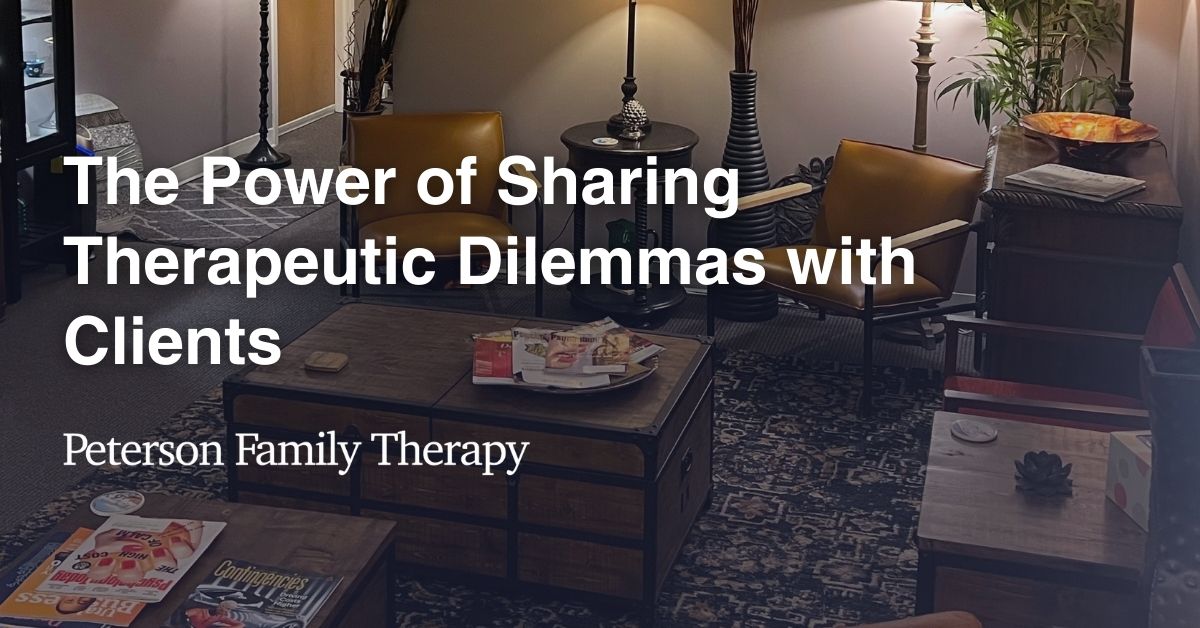The Power of Sharing Therapeutic Dilemmas with Clients

In Irvin Yalom’s book The Gift of Therapy: An Open Letter to a New Generation of Therapists and Their Patients, on page 168, Yalom says this:
“Generally, when I’m stuck or having difficulty responding to a patient, it’s because I’m caught between two or more competing considerations. I believe you can almost never go wrong by expressing your dilemmas openly.”
Here’s his example:
“Ted, let me interrupt. I feel a bit caught today between two opposing feelings. On one hand, I know that the history of your conflict with your boss is important, and I know too that often you feel hurt when I interrupt you. But on the other hand, I have the strongest sense that you’re avoiding something important today.”
In this blog post, I want to comment on this idea of sharing with clients as a therapist—sharing some of the dilemmas, thoughts, and feelings that I’m having as we’re doing therapy together.
This is a very important part of therapy. It’s not making the therapy about me, but it is engaging authentically in the relationship with the client.
Very often in a therapy session, I will feel lost—and most therapists would agree they feel this way at times. Are we really getting to the important thing? Are they really talking about their stuck place? Are they really talking about their pain, or are they just telling a story and being conversational?
At those times, I will say, “Excuse me, but I need to interrupt and ask you a question. Tell me what is the most important thing we need to talk about today,” or “What’s the hardest thing you’ve been dealing with?” or “Is there something that you’re avoiding telling me?”
These questions can open up a therapy session in powerful ways.
I’m very passionate about making sure that therapy is a rich, positive experience for my clients. I do believe that it’s good for me to share my experience, my thoughts and feelings in the therapy session—when it’s therapeutic, applicable, and appropriate—because it can help the client grow more and get even more out of therapy.
So it’s really important as a therapist, and good for clients to know too, that we do share our dilemmas. Some of the best therapy sessions happen when I interrupt and say, “Hey, I think maybe we’re off track. Maybe we need to move in another direction.”
My favorite questions are: “What is the one thing we’re not talking about?” or “What is the one thing you don’t want to tell me today?”
These are some of the approaches we use here at Peterson Family Therapy in Salt Lake City, and they apply to both couples work and individual work. This is part of my philosophy of being a therapist and giving the very best care to clients.



Leave a Reply
Want to join the discussion?Feel free to contribute!